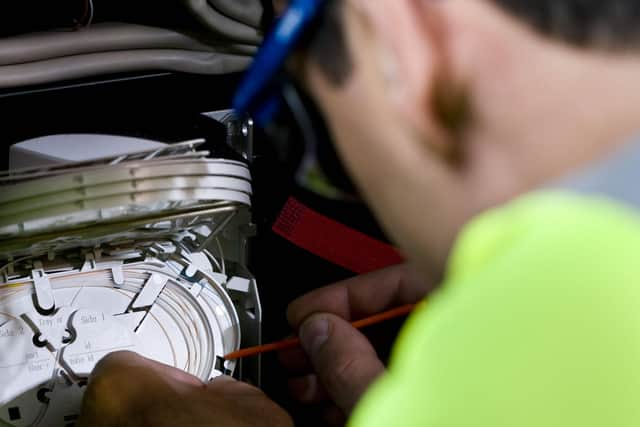BT fastracks roll out of ultrafast broadband in a move that will create 7,000 jobs
Philip Jansen told reporters that the company would create jobs as it upped its fibre targets by five million within the next five years.
Around 25 million homes will now be connected by 2026, up from 20 million earlier.
Advertisement
Hide AdAdvertisement
Hide AdThe investment was made possible, BT said, in part by the Government’s recent tax deduction, designed to unlock investment from big companies.


The so-called “super deduction” will allow BT to pay only “minimal” corporation tax in the UK in the next couple of years, said finance chief Simon Lowth.
It has paid between £200 million to £300 million in past years.
However, he added that the investment will mean that BT likely makes higher profits in future, which the Government will tax.
Advertisement
Hide AdAdvertisement
Hide Ad“This is a good example of regulation, government policy, and the industry working hard to do the right thing for the country and the population at large,” Mr Jansen said.
He said around 7,000 jobs will be created.
The investment will also be unlocked by a recent review of the telecoms market by Ofcom (known as WFTMR).
Robert Thorburn, Openreach’s regional partnership director for the North of England, said: “We’ve already proven that we can build ultrafast and ultra-reliable Full Fibre broadband to millions of homes and businesses – including thousands in the East of England - at pace, and without compromising on quality.
“We believe the time is right to capitalise on that potential and, having made this technology available to 4.6m premises already, we expect to reach a peak build rate of four million premises a year.
Advertisement
Hide AdAdvertisement
Hide Ad“It’s all systems go for a Full Fibre future here at Openreach.”
It came as BT reported a large dip in its financial performance for the last year.
Between April 2020 and March 2021 – a year heavily overshadowed by Covid-19 – profit dipped by 23 per cent to £1.8 billion.